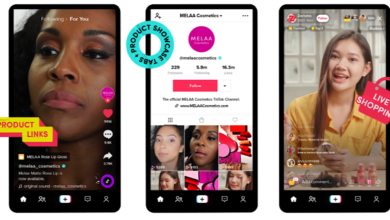Here’s How Meta Is Changing Facebook Ads Targeting For 2022

January 19 – Save the Date! Meta has announced that audience targeting changes are coming to Facebook ad campaigns.
In response to industry pressure, Facebook’s parent Meta brand is sticking to its previous promise and will reduce advertiser targeting settings.
This also indicates a broader trend.
On the other hand, a high degree of targeting precision supports the creation of highly customized experiences, allowing for relevant and valuable user interaction.
At the same time, there is an increased sensitivity when identifying people based on their affiliation for social reasons, health conditions, or demographic characteristics.
With this in mind, Facebook therefore limits advertising options not to allow targeting based on these sensitive parameters.
What changes in targeting Facebook ads
Starting January 19, Facebook will remove targeting options in four major categories along with rarely used niche segments.
- Health reasons (eg breast cancer awareness).
- sexual orientation (as LGBT).
- religious practices and groups (eg the Catholic Church).
- political beliefsor social issues, issues, organizations, or personalities (such as a political party or political candidate).
Meta update In the upcoming changes, it indicates that campaigns can continue to deliver impacted audience goals until late March 2022.
In addition, changes will not be fully propagated through the Meta ecosystem.
For ad groups created before January 19th, you’ll be able to make campaign-level adjustments, such as budget amounts or campaign names, without affecting targeting until March 17th.
However, adjustments at the ad group level will cause audience changes.
Likewise, if an ad group was paused before March 17, when it is reactivated, the new targeting changes will take effect.
After March 17, it will no longer be possible to edit previous campaigns that benefit from disabled targeting settings.
In order to make changes at the campaign, ad group or ad level, you may need to review your detailed targeting settings before March 17th.
Will there be any broader impact for advertisers on social networks?
It will be interesting to see if other social media platforms follow suit and also adjust their targeting capabilities. So far, Meta has seen more pressure than other platforms.
Without review and perhaps also reduce the accuracy of targeting across sensitive criteria, other social platforms risk imposing the same scrutiny that was directed at Facebook.
You might expect that in the near future, they will also scale back their targeting away from personal characteristics.
Meta hasn’t indicated if it envisions more targeting tweaks or if this will be the only tweak for the foreseeable future.
However, you can take comfort that Meta is responding to the increased audio feedback and hope it continues to take note of further developments.
While this first appeared in the context of social media, providers of automated and search advertising should also be careful.
Historically, these compounds have benefited greatly from data allowing a high level of targeting accuracy and providing accurate insights using demographic, socioeconomic and other parameters.
If these players do not directly engage with the sensitivity of accurate ad targeting and reporting in light of the aforementioned developments, they may be forced to (once the implications of deprecating cookies gain momentum).
From social issues due to profiling to the larger trend of data privacy concerns, advertising platforms and advertisers alike must be prepared to address sensitive topics.
More resources:
- How do Facebook ads actually work? Here’s what you need to know
- 12 Facebook Ads Features Every Marketer Should Know
- Social Media Marketing: A Complete Strategy Guide
Featured image: Jirsak/Shutterstock




